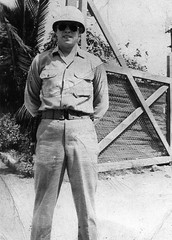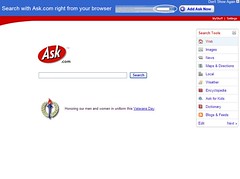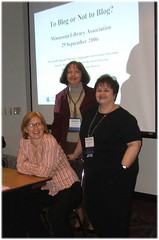Minnesota Educational Media Association is meeting this week. Here is what has stood out for me in presentations I’ve attended:
Opening session featured panel of 3 Minnesota leaders in education and technology: Kit Hadley, Minneapolis Public Library Director; Scott McLeod, Director of the UCEA Center for the Advanced Study of Technology Leadership in Education at the University of Minnesota; Gopal Khanna, Chief Information Officer for the State of Minnesota.
Kit Hadley opened, quoting Joey Rogers from the Urban Libraries Council, reminding us that all libraries are part of a larger institution and libraries’ financial well-being is directly linked to that of the parent institution. She said that “Ready for K” (for instance) is an economic issue and one that will get attention for participants. She warned that proposed legislation will not be effective when it is the same issues over and over, albeit repackaged prettier and wittier.
Gopal Khanna said that information and technology literacy is a workforce issue. Historically, education has been a passing on of memorized information from generation to generation. Contemporary education needs to be based on research and learning. It is important to teach not for today’s world, but the world students will encounter in 15 years. He further challenged us with the idea that society has 2 sectors – the public and the private, which react in different ways and that the private sector has much to learn from the public sector. He said the private sector too much “loves to celebrate the problem.” Nobody comes to meetings with a solution — they are focused on talking about and agreeing on “the problem.”
Scott McCleod (presentation online) listed 4 trends that will continue: increased diversity, increased technology, globalization, and aging population. We have no idea what the workplace will be like for children, but we must prepare them for it. The folks in charge “don’t get it.” Kids find schools irrelevant. He said that technology has brought in a global environment. We need to ask what it means to write for a global environment. We ask kids to write for the teacher, but when they go home, they write for the global environment. Which is more relevant, meaningful, exciting? He quoted Seth Godin: “They say we can’t handle this much change. I say, your relevance is in jeopardy. What choice do you have?”
Constance Steinkuehler delivered The Digital Collective and Commons: Massively Multiplayer Online Games and the New Media Literacy. She spoke knowledgeably about the cultural and intellectual significance of gaming. Kids are using textbooks as cheats for their games. Exciting!
Keith Johnson spoke about using blogging in the classroom. He brought student Trevor Born, writer of the Twins blog, TwinsJunkie.com. Trevor has gained the attention of the Star Tribune and done a radio show. A great testament to the positive impact of blogging on kids who participate.






